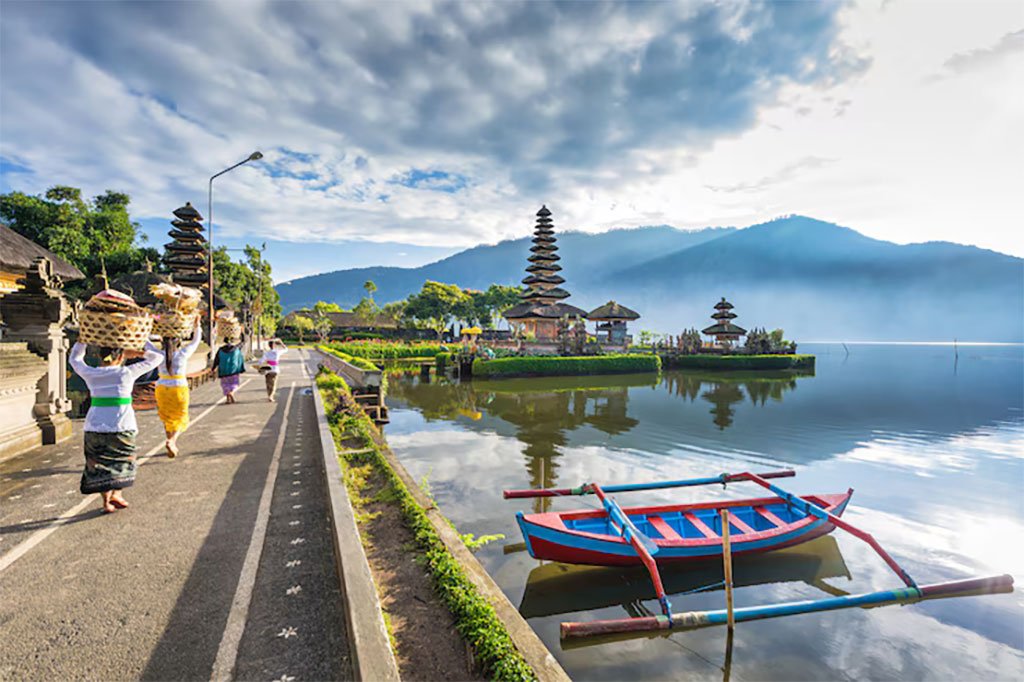How to Photograph Ubud Bali’s Stunning Rice Terraces
Ubud, Bali, is renowned for its lush landscapes, rich culture, and serene atmosphere. Among its most iconic features are the stunning rice... Read More

Are you planning your first trip to the tropical paradise of Bali? If so, you’re in for an unforgettable adventure! Bali is a dream destination for travelers worldwide, offering stunning beaches, vibrant culture, delicious cuisine, and breathtaking landscapes.
But like any new destination, first-time travelers can benefit from some expert advice to make the most of their experience. This article will share 11 essential tips for first-time travelers to Bali to help you enjoy your trip safely, smoothly, and memorably.
Bali, known as the “Island of the Gods,” is famous for its incredible beaches, lush rice terraces, vibrant arts scene, and spiritual atmosphere. It’s a perfect blend of relaxation, adventure, and cultural immersion. However, to truly enjoy Bali, first-timers need to prepare wisely — and that starts with knowing some insider tips.

Your adventure starts long before you set foot on the island. Use the focus keyword “11 Tips for First-Time Travelers to Bali” as your guide to plan. Research Bali’s regions—like Ubud for culture, Seminyak for nightlife, and Canggu for surfing. Booking flights and accommodation in advance can save you money and hassle.

Timing your visit is key. Bali’s dry season (April to October) is ideal for beach activities and sightseeing. But if you’re looking to experience cultural festivals like Nyepi (Day of Silence) or Galungan, plan accordingly. Rainy season (November to March) can bring heavy showers but fewer tourists.

Bali’s tropical climate means lightweight, breathable clothing is a must. But remember modest attire when visiting temples. Bring sunscreen, mosquito repellent, and a reusable water bottle. Don’t forget adapters for electronics (Bali uses 230V, plug types C and F).

Bali has rich Hindu traditions. When visiting temples, dress respectfully, cover shoulders and knees, and avoid loud behavior. Learning basic greetings in Bahasa Indonesia, like “Terima Kasih” (Thank you), will earn you warmth from locals.

Traffic in Bali can be chaotic. Renting a scooter is popular but only recommended if you’re experienced. Otherwise, use taxis or apps like Gojek and Grab for affordable rides. Always wear helmets on scooters and avoid driving at night.

Stay hydrated, avoid drinking tap water, and eat at reputable restaurants to prevent illness. Pack a basic first aid kit and any medications you need. Travel insurance is highly recommended. Be cautious with street food but don’t miss trying local dishes like Nasi Goreng and Satay.

From luxury resorts to affordable guesthouses, Bali has options for every budget. Ubud offers tranquility and culture; Seminyak is lively with beach clubs; Canggu attracts surfers and digital nomads. Booking early, especially during peak season, ensures the best choices.

The Indonesian Rupiah (IDR) is the local currency. Use official money changers and avoid street vendors for currency exchange. Many places accept credit cards, but carry cash for small purchases. Tipping is appreciated but not mandatory.

While Bali’s beaches are stunning, don’t miss inland adventures. Visit the Tegalalang Rice Terraces, hike Mount Batur for sunrise, or explore waterfalls like Sekumpul. Experience traditional Balinese dance performances and visit artisan villages.

Getting a local SIM card at the airport is easy and affordable, providing reliable internet. Most cafes and hotels offer free Wi-Fi. Staying connected helps with navigation, ride-hailing, and sharing your adventures instantly.

Bali faces environmental challenges from tourism. Help by reducing plastic use, supporting eco-friendly businesses, and respecting wildlife and nature. Participate in beach clean-ups or choose tours that promote sustainability.
With these 11 Tips for First-Time Travelers to Bali, you’re well-equipped to embark on an incredible journey. Bali is a destination full of beauty, culture, and adventure waiting for you to explore. Plan ahead, stay safe, and open your heart to new experiences — Bali will reward you beyond your expectations!
The best time to visit Bali is during the dry season, from April to October. This period offers sunny weather, perfect for beach activities, sightseeing, and outdoor adventures. However, visiting during local festivals can also be a unique experience.
Most travelers need a visa to enter Indonesia, including Bali. Many countries are eligible for a Visa on Arrival (VOA), valid for 30 days and extendable once. It’s best to check your country’s visa requirements before traveling.
Yes, Bali is generally safe for tourists. However, like any tourist destination, it’s important to stay aware of your surroundings, avoid risky areas at night, and follow health and safety guidelines.
Renting a scooter is popular and convenient but only recommended if you have prior riding experience. Bali’s traffic can be hectic, and road conditions vary. If unsure, use taxis or ride-hailing apps like Gojek or Grab instead.
Pack lightweight, breathable clothing suitable for tropical weather, swimwear, sunscreen, mosquito repellent, and modest clothes for temple visits. Don’t forget a reusable water bottle and a travel adapter.
No, tap water in Bali is not safe to drink. Always use bottled or filtered water to stay hydrated and avoid getting sick.
Bali offers options for every budget—from budget hostels to luxury resorts. Daily expenses vary but a moderate budget traveler can expect to spend around $30-$50 USD per day, including food, accommodation, and transport.
Credit cards are accepted in many hotels, restaurants, and shops in tourist areas. However, carry cash for smaller vendors, markets, and rural areas.
Respect for Balinese Hindu culture is essential. Dress modestly when visiting temples, remove shoes before entering sacred sites, and avoid loud or disrespectful behavior.
Buying a local SIM card at the airport or nearby shops is affordable and easy, offering good internet coverage. Most hotels and cafes also provide free Wi-Fi.
Don’t miss trying Nasi Goreng (fried rice), Satay (grilled meat skewers), Babi Guling (suckling pig), and fresh tropical fruits. Street food is tasty but eat at clean, reputable places to avoid stomach issues.
Join The Discussion